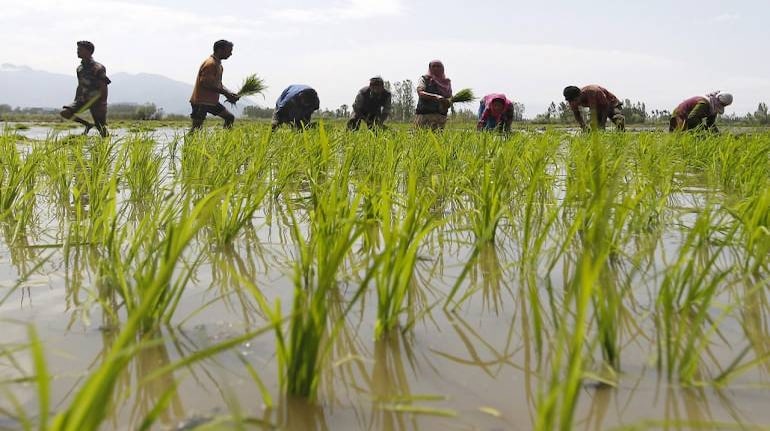



India’s decision to stay away from a multilateral agreement on sustainable farming is rooted in the fact that it is “actually unsustainable without climate finance”, officials said at the end of the crucial first week of COP26 climate change conference in Glasgow.
According to the British Government, more than 27 countries have laid out new commitments to change their agricultural policies to become more sustainable and less polluting, and to invest in the science needed for sustainable agriculture and to protect food supplies from climate change.
But, days after initial reports said India was a party to the ‘Sustainable Agriculture Policy Action Agenda’, the Environment Ministry clarified that New Delhi has not signed the agreement.
Officials told Moneycontrol that these aforementioned measures are inevitably taken by nations in a bid to increase their crop yield and protect their farmland.
“Such piecemeal initiatives only represent a band-aid on an open wound. Instead of addressing the real issues of climate responsibility and the need of finance from richer economies, these change to shift the focus of discussions,” a senior official attending the COP26 talks said.
“Ironically, the vast majority of smaller states would not be able to abide by the aims of sustainable agriculture if they don’t receive suitable climate finance support from the more developed economies,” he added.
Current position
Interestingly, India had pushed for food security and stable farm incomes at the G20 summit a few days back. On the issue of sustainable development and food security, India has emphasised that policies must protect the interests of small and marginal farmers, and conserve local food cultures, which, in turn, will contribute significantly to food security.
Over the past week, India has told the COP26 gathering that the lack of a serious approach to climate finance will jeopardise the enhanced mitigation and adaptation ambitions as well as net zero pledges of parties.
Towards the end of the first week, India also submitted it’s third Biennial Update Report (BUR), which stated that while the country represents 17 percent of the global population, its historical cumulative emissions are only 4 percent, and current annual Greenhouse gas emissions are only about 5 percent.
“We have been consistent in our position. The third BUR demonstrated how we reduced by 24 percent the emission intensity of our gross domestic product over the 2005-2014 period. This has been led by a significant increase in India’s solar programme and systematic legislation to curb carbon emissions by polluting industries,” another official said.
Over the last seven years, which have been covered by the BUR, India’s installed solar energy capacity increased 17 times.
Case by case basis
New Delhi had refused to sign three other marquee global initiatives at COP26, widely considered to be some of the highlights of the first week, that were led by major powers such as the United Kingdom, European Union and the United States. Officials had cited various reasons for the decisions to stay away from these initiatives.
The three commitments pertain to a global clean coal initiative by countries and major businesses to end all investments in new coal power generation domestically and internationally along with a pledge by more than 100 countries to cut methane emission levels by 30 percent from 2020 levels by 2030.
Interestingly, India has also snubbed British efforts to halt and reverse deforestation and land degradation by the end of the decade. More than 100 nations, including Canada, Russia, Congo, Indonesia and Brazil, which account for 85 percent of the global forest cover, have voiced support for the initiative.
Discover the latest Business News, Sensex, and Nifty updates. Obtain Personal Finance insights, tax queries, and expert opinions on Moneycontrol or download the Moneycontrol App to stay updated!